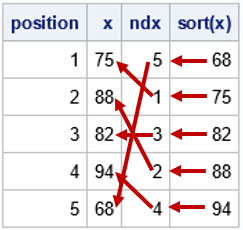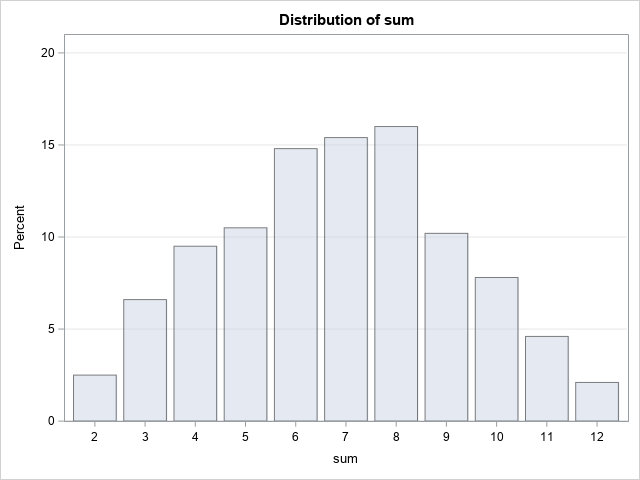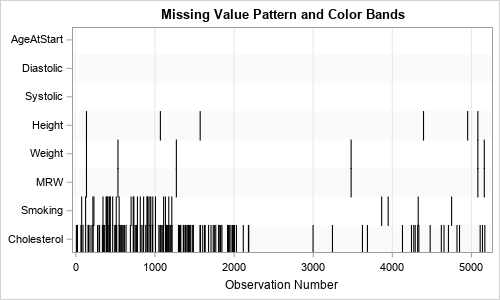 You’re probably already familiar with Leonid Batkhan from his popular blog right here on The Learning Post. In fact, he’s one of our most engaging authors, with thousands of views and hundreds of comments. Leonid is a true SAS Sensei. He has been at SAS for nearly 25 years and a SAS user for even longer, so obviously he has a wealth of knowledge to share. But did you know he’s also a big fan (and supporter) of SAS Press books? He provides technical feedback on our authors’ drafts to make sure their books are as accurate and up-to-date as possible.
You’re probably already familiar with Leonid Batkhan from his popular blog right here on The Learning Post. In fact, he’s one of our most engaging authors, with thousands of views and hundreds of comments. Leonid is a true SAS Sensei. He has been at SAS for nearly 25 years and a SAS user for even longer, so obviously he has a wealth of knowledge to share. But did you know he’s also a big fan (and supporter) of SAS Press books? He provides technical feedback on our authors’ drafts to make sure their books are as accurate and up-to-date as possible.
Leonid recently reviewed one of our forthcoming books, and he was so helpful that I decided to ask him if he would be willing to do even more work! He graciously agreed to answer a few questions about why he loves SAS and SAS Press books.
Q: Leonid, thanks for talking with me. You’ve been a SAS user for over two decades! I’m sure you have lots of stories to tell. What is the coolest project you’ve worked on or the project you’re most proud to have participated in?
To me that question is like asking a parent “which child of yours is your favorite?” I have 3 children, by the way. I love them all, I love them all differently, and I proud of each of them. I have worked on more than a hundred projects during my time at SAS. Some of them lasted just a few days, some a few months, some more than a year, and one – a whopping six years.
When I start working on a project it becomes part of my life, I get emotionally attached to it. In a sense it becomes my new child. While I can’t choose a favorite project, I talked about one at length in this blog post: Are you solving the wrong problem? For me, that project was about the importance of asking good questions. In that case, I was able to give the customer a 100% improvement vs. their expected 20-30%, not to mention the solution was achieved in 2 hours vs. the expected 5 days. The customers were stunned and happy; I was just happy.
Q: There are lots of ways to learn SAS now: in a classroom, using a book, or through trial and error. What was your path to learning SAS? What advice would you give to someone who is new to SAS or wants to learn?
I first heard about SAS in 1991 on my first job in the USA where I emigrated from USSR earlier that year. At the time I was employed as a PL/I computer programmer by DynCorp. About a month into my job, I was ordered to attend a 3-day SAS course held onsite by a SAS instructor. After the course, my boss announced to me that from now on I was a SAS programmer. And so, I was.
At that point, SAS was yet another programming language because I had several others already under my belt: FORTRAN, PL/I, Pascal, and even Assembly language. But SAS was quite different from the other languages I knew: it was so much more powerful, yet I struggled with its implicit data step loops and code-generating SAS macro language. At that same time, I was struggling adjusting from Russian to English as a language of communication, and I can’t say with certainty which struggle was more difficult. By 1995, I was comfortable enough with SAS (and English) to join SAS Institute’s Consulting Department.
For me, a SAS classroom course was the best way to start off. Then you can move on to self-training (read books, articles, and blogs; compete on Sasensei; attend SAS conferences; study and take SAS Certification exams). SAS OnDemand for Academics is free and available to everybody, not just university students and professors. You still need to read, sift it through your head, test your understanding, practice, experiment, and find alternative solutions. I do that every day, after more than 25 years.
I suggest starting your SAS journey in the field of your prior training or wherever you feel most comfortable and passionate. This will just boost your motivation and learning productivity. Many SAS professionals I know have come to the SAS fold their own way, with backgrounds not in computer science or statistics. I believe that because of their backgrounds in different subject matters, they have a much better understanding of the data they deal with.
Q: What is the best piece of advice you’ve ever been given?
In my professional life, the best piece of advice I’ve heard came from Albert Einstein who once said, “If I were given one hour to save the planet, I would spend 59 minutes defining the problem and one minute resolving it.” For me that translates into: don’t jump into action before you understand what problem you are going to solve. Ask questions to understand the purpose of solving your problem. It saves me and my customers a lot of time otherwise spent on solving the wrong problems.
Q: What SAS Press books do you have on your bookshelf? Which ones do you recommend?
I have 4 bookshelves in my office filled with SAS books and other SAS-related materials. If I start listing all SAS Press books I have on my bookshelf, we will be here all day. I am a bookworm. If you asked me which books I use most often, here is an abbreviated list of SAS books I personally like:
- The Little SAS® Book by Lora D. Delwiche and Susan J. Slaughter.
- The Little SAS® Enterprise Guide® Book by Susan J. Slaughter and Lora D. Delwiche
- Carpenter's Complete Guide to the SAS® Macro Language by Art Carpenter
- How to Become a Top SAS® Programmer by Michael Raithel
- Practical and Efficient SAS® Programming: The Insider’s Guide by Martha Messineo
- PROC SQL: Beyond the Basics Using SAS® by Kirk Paul Lafler [Ed note: New edition coming soon thanks to Leonid’s technical feedback!]
- An Introduction to SAS® Visual Analytics by Tricia Aanderud, Rob Collum, and Ryan Kumpfmiller
Q: What SAS book or resource do you wish existed that doesn’t yet?
I have been fascinated with encyclopedias since my childhood. I still have a 12-volume Children’s Encyclopedia in my native Russian language. Sometimes I pull a volume and read it randomly. I would like to see some sort of SAS Encyclopedia. I realize that for the fast-changing modern world, a paper version of it wouldn’t be practical.
I am thinking about a modern encyclopedia, some kind of WikiSAS (or SASWiki), not just an electronic version, but an interactive online version (i-WikiSAS) that is being updated in near real time. It could bundle together all various SAS resources: SAS-related websites, SAS documentation, SAS books, SAS blogs, SAS communities and social networks… And that is where we can put to real work a ubiquitous AI (Artificial Intelligence) to facilitate searches.
Imagine, a user asks a question “How to do something in SAS” and that question gets processed on the back end employing AI, and searching all available resources, maybe even does some code testing, validation and benchmarking to produce the best answer or solution. If you get an irrelevant or unsatisfactory answer it is probably because your question was not good enough. You just modify your question and ask again. This brings us back to honing your questioning skills. The ability to ask the right questions becomes a super skill.
Thanks so much, Leonid! I hope one day we’ll have an AI-powered SAS Encyclopedia that can answer all our questions. In the meantime, people can check out the SAS Press bookstore and Leonid’s blog posts to build their knowledge.
How did you learn SAS: book, class, or trial and error? Let us know in the comments.





13 Comments
Leonid,
I am so honored that you included The Little SAS Book and the Little SAS Enterprise Guide Books in your list! Thank you!
I learned SAS from other programmers. I was very lucky that my first job included taking over responsibility for a suite of production jobs that had been written by a guy who was a very creative SAS programmer. Some of his programs were incredibly inefficient, but I learned a lot by figuring out how his programs worked and then polishing them up.
While we are waiting for the SAS Encyclopedia you described, I am a regular user of SAS' built-in SAS Help and Documentation and the online SAS Documentation at https://support.sas.com/en/documentation.html
Thank you, Susan, for your comment and sharing your experiences. Your Little SAS Books have become SAS classics - many generations of SAS programmers have been raised on them.
Your SAS learning path is perhaps the harshest one, but that put you at advantage over many: “Train hard, fight easy”. It also suggests a title for your next book: “How not to write SAS programs” :)
Leonid,
I'm not so sure that an entire book of "How not to write SAS programs" would get much traction, but I can see it as a conference paper. In a way it has already been done by Art Carpenter and his series of "Programming for job security" papers, but I could see doing a slightly less tongue-in-cheek version. So even though you were kidding, thanks for the suggestion!
I was not kidding (I was just smiling). I would be the first in line to buy that book, because even after 25+ years of being a SAS user, I still find myself sometimes writing SAS programs less efficiently than it could be. For the novice SAS programmers such a book would have been a life saver.
Thank you, Leonid and Suzanne for the article. The clarify and very practical answers are very much appreciated. And of course, there is so much wisdom in Leonid's advice to take the time to define a task/problem clearly.
Lovely interview. I appreciated especially Leonid's emphasis on taking the time to define the problem and ask the right question--great advice for authoring and reviewing SAS books and guides, as well as for arriving at technical solutions.
Thanks for calling out Sasensei! For those who aren't familiar - Sasensei is a quiz game for SAS enthusiasts, where you earn reputation and unlock levels (like multiplayer) by answering questions correctly, or by submitting good quality questions for others to enjoy. Players have submitted questions on a wide range of topics, including Data Step, Proc SQL, Viya, Proc LUA, SAS Macro, and more. There is also a leaderboard (by country, continent, and global) with more features planned in 2019!
https://sasensei.com
I hadn't heard of SASensi before so it's great to find out more about it! It sounds really fun!
Mine has to be Cody, Learning SAS by Example, this was a great help to cement the syntax for the Base SAS certification exam for me. Also Jordan's, Mastering the SAS DS2 Procedure, was a good read on the plane to clinch the SAS Academy of Data Science, Big Data Professional certification. And I loved their sense of humor! :)
I bet Leonid has those on his shelf somewhere, too! Thanks for sharing what helped you pass the certification exams. They're tough!
I confirm, I do have the book by Ron Cody and Ray Pass, only the earlier version that's called SAS Programming by Example. It was one of the first SAS books I read while learning SAS at the end of the last Millennium. I absolutely loved it. As for Mark Jordan's Mastering the SAS DS2 Procedure: Advanced Data Wrangling Techniques, I do have it too, but I have yet to read it...
This is a great blog! I am still new to SAS but I found the base programming classes taught by SAS instructors extremely helpful in getting started. I also love The Little SAS® Book by Lora D. Delwiche and Susan J. Slaughter. This is a great book for beginners like me!
Thanks for sharing! I think the Little SAS Book must be so popular for a reason!